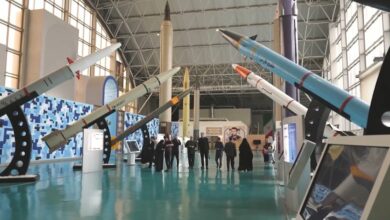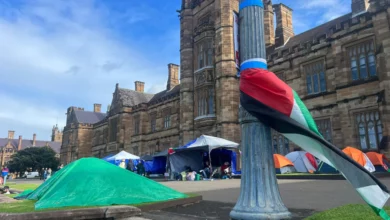As Palestinian, Israeli, and American negotiators fly into Sharm El Sheikh this week for round two of the latest US-sponsored peace talks, optimism isn’t exactly running wild.
The two sides met directly in Washington last week, with unclear results. In theory, this is meant to be the stage at which the actual nuts and bolts of this new peace initiative come into clearer focus.
The American sponsors of the new initiative are doing their best to put a hopeful face on things. Secretary of State Hillary Clinton said the new process has “a certain momentum”–not exactly a ringing endorsement. “You know, we have some challenges in the early going that we have to get over, but I think that we have a real shot here," Clinton said Wednesday in a speech at the Council of Foreign Relations in Washington DC.
But Clinton also touched on an important aspect of this new peace process, the mood of mutual desperation. "Both sides and both leaders recognize that there may not ever be another chance," she said. She might be right. Put simply, the viability of a two-state solution is running out of time.
Palestinian Authority President Mahmoud Abbas is on shaky domestic ground, barely in control of half of his proposed nation and still in power largely due to direct American and Israeli support. On the Israeli side, it has been common knowledge for years that Israel is losing the demographic race. Within a few decades, Jews will become a minority, controlling an Arab majority by force.
A growing sector of Palestinian analysts and pundits have begun advocating a “one-state solution” which calls for simply waiting until Arabs outnumber Jews and then demanding equal voting rights. One of the key aspects for supporters of that scenario is a firm belief that peaceful negotiations can never produce a just solution. Former Israeli Prime Minister Ehud Olmert, who participated in the last failed peace initiative under the Bush administration, bluntly made that point to his own people, arguing that the future of the Jewish state depends on a lasting peaceful separation into two states.
“For Israelis, the demographic problem is very important. They would like to split from the Palestinians,” said Mohamed Bassiouny, a former Egyptian Ambassador to Israel who now serves on the Shura Council.
Despite those dire warnings, that process faltered two years ago, and little seems to have changed on the ground to indicate that this latest initiative will break the more than 60-year deadlock.
On the Arab side, there seems to be little enthusiasm for a new round of endless closed-door debates. “We’ve discussed all these issues before. We don’t need more negotiations,” Bassiouny said. “We need political will.”
Abbas, commonly known in the Arab world as Abu Mazen, has done little to hide the fact that he was basically forced back to the negotiating table by the Americans. For months he refused to accept direct talks unless he received a blanket ban on Israeli settlement construction as a precondition. The Israelis refused and the Americans kept the pressure on Abbas, forcing him into a humiliating reversal, back to negotiations with literally none of his demands met.
“I have a sense that Abbas came reluctantly. The Americans have a way of putting enormous pressure and getting what they want,” said Khaled al-Gindy, a former official with the Palestinian Negotiation Support Unit, now serving as a visiting fellow at the Brookings Institute, a prominent Washington DC think tank.
With Abbas weaker than ever, Hamas still defiantly ruling Gaza, and a right-wing government in control in Israel, al-Gindy said the new peace process looks uncomfortably similar to the last one, but with one potentially crucial difference: US President Barack Obama. “Everything looks the same. The main difference is Obama, but that’s not a small distinction,” he said. “He’s personally engaged, and from the very start of his administration. Obama has identified this as of vital national security interest and that alone gives this a sense of purpose.”
But even if everyone gets along wonderfully in Sharm El Sheikh this week, the new process comes with its own built-in time bomb. Israel’s temporary moratorium on settlement construction—a watered-down compromise following Obama’s original tough demands for an absolute and indefinite freeze—ends on 26 September. That means that Netanyahu can use the threat of resuming settlement construction to force concessions from both the Palestinians and the Americans.
Netanyahu’s own foreign minister, Avigdor Lieberman, is already saying he will fight to make sure that settlement construction resumes once the deadline passes. "We will not agree to any extension. I promise that if there's a proposal that we don't accept, it will not pass,” Lieberman told Israeli radio last week.
If so, that could put Abbas in a politically impossible position and doom the newest peace process almost before it really begins. “If Netanyahu resumes settlement activity, of course Abu Mazen and the Palestinians will withdraw,” Bassiouny said.




